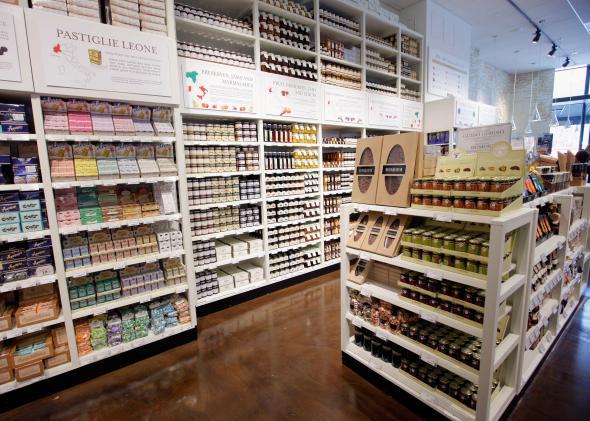In late February, the Wall Street Journal reported that Eataly, an international chain of food emporiums, is planning to open a theme park devoted to food in Bologna in 2015. “Promoters of the project, which would be named Fico Eataly World and cost about €40 million ($54.9 million) to develop, describe it as a Disneyland of food,” the Journal’s Alessia Pirolo reported.
That moniker stuck. The phrase “Disneyland of food” has appeared in virtually every article about the planned amusement park, and it seems to be the impetus of virtually every negative opinion of Eataly World cited in said articles. “Sounds like something for tourists,” a Roman woman told NPR, “We Italians have no need for such a theme park.” Hugh Merwin of Grub Street snarked, “The chief executive of the fund-management company backing the project says Eataly World should be generating the equivalent of $118 million in revenue by 2019, which means we can definitely expect to have Eataly-branded spumoni water-skiing in Tampa by 2025.” A commenter on a Daily Beast article on the topic earlier this week wrote, “I am very disappointed in Eataly doing something so centralized and soulless.”
But no one should be surprised by Eataly’s announcement. Eataly World—and the phrase “Disneyland of food”—hint at the paradox that has so far served Eataly very well (in the U.S., at least). Eataly has tried to have it both ways: It is a multimillion-dollar corporation that projects the image of being a high-quality, rarefied specialty store. Eataly’s enormous outlets, which boast internal restaurants, bars, butchers, fishmongers, and much more, are already mini-Disneylands. When Eataly opened in Manhattan, the New York Times’ Sam Sifton asked,
Is Eataly a menace (so big and corporate) or an answered prayer (OMG, they sell Barilla bucatini)? Does it represent a step forward for Italian food at the upper end of the economic spectrum of New York, or is it simply a mass-market retail play that capitalizes on the fame of its most visible partners, Mario Batali, Joe Bastianich and his mother, Lidia Bastianich?
Sifton answers yes to both of these questions. Eataly has always walked a fine line—and one of the main reasons it’s enjoyed a reputation among Americans as a foodie mecca is that it’s so inaccessible. The only American branches of Eataly are in New York and Chicago, which means that New Yorkers and Chicagoans get to feel like they’re part of a special club.
Eataly’s mistake in announcing its new venture, then, was not in the idea itself: A theme park for foodies is simply a logical extension of what Eataly already is. The problem was the way Eataly framed the message: Disneyland, to most Americans, connotes populist, materialistic excess—everything that the kind of people who shop at Eataly like to pretend they’re immune to. If Eataly had kept the idea the same but announced Eataly World as a “gastronomic education center,” I doubt the reaction would be so negative.
